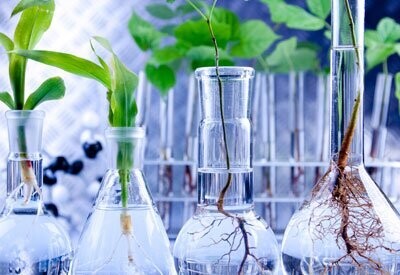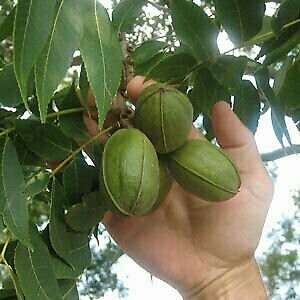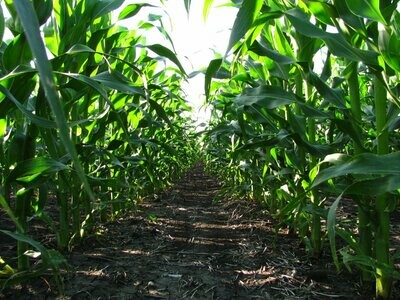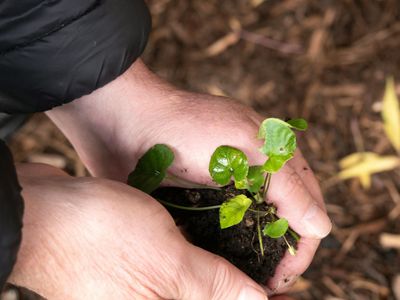Silicon-Insight: Total Silicon
Understanding Total Silicon
Silicon plays a vital role in strengthening plant cell walls, enhancing stress resistance, and promoting robust growth. While not all silicon is immediately available for plant use, knowing the total silicon content provides valuable insights into the overall silicon uptake and accumulation within your crops.
What is Total Silicon?
- Definition: The sum of all silicon present in plant tissue, encompassing both soluble (readily available) and insoluble (structurally bound) forms.
- Characteristics:
- Includes silicon integrated into cell walls and structural components.
- Represents the cumulative silicon absorbed over the plant's growth cycle.
- Importance:
- Offers a holistic view of silicon nutrition and accumulation.
- Helps assess long-term soil fertility and the effectiveness of silicon fertilization strategies.
Total Silicon vs. Acid Soluble Silicon
Understanding the difference between total silicon and acid soluble silicon is crucial for effective nutrient management:
- Total Silicon:
- Measures all silicon content within the plant tissue.
- Reflects both the immediate and stored silicon forms.
- Useful for assessing overall silicon uptake and long-term management plans.
- Acid Soluble Silicon:
- Measures only the silicon readily available for immediate plant use.
- Focuses on the bioavailable fraction that contributes to short-term growth and stress responses.
- Useful for making immediate adjustments to silicon supplementation.
Why Choose the Total Silicon Plant Test?
By analyzing the total silicon content in your plants, you can:
- Evaluate Silicon Accumulation: Understand how much silicon your plants have absorbed throughout their lifecycle.
- Assess Soil and Fertilizer Effectiveness: Determine the impact of your soil amendments and silicon fertilizers over time.
- Develop Long-Term Strategies: Inform your decisions on crop rotation, soil management, and future fertilization to enhance plant resilience and productivity.
How It Works
- Sample Collection: Collect plant tissue samples following our provided guidelines to ensure accuracy.
- Submission: Send your samples to our laboratory using the supplied packaging and shipping instructions.
- Analysis: Our team of experts conducts a thorough analysis using state-of-the-art equipment to quantify total silicon content.
- Detailed Reporting: Receive a comprehensive report with clear results and actionable recommendations to optimize your agricultural practices.
Order Your Total Silicon Plant Test Today
Take a proactive approach to crop management. Order the Total Silicon Plant Test now to gain valuable insights and make data-driven decisions that enhance plant health and maximize yields. Silicon enhances the growth and yield of all annual and vegetable crops. It also promotes the growth of stronger and thicker stems with shorter internodes. Studies have alsodemonstrated Silicon's ability to prevent lodging, promote favorable exposure of leaves to the light, provide resistance to bacterial and fungal diseases and decrease some abiotic stress as temperatures, salinity, heavy metal and aluminum toxicity.
According to research, silicon increase a plant’s resistance to several diseases such as powdery mildew and improves plant resistance to insect pests. Silicon has been found to have a positive effect on the biomass yield under reduced irrigation practices. Plants subjected to drought, when treated with silicon, maintained higher stomatal conductivity, relative water content and water potential. Silicon helps leaves become larger and thicker, thus limiting the loss of water through transpiration thereby reducing water consumption.
Silicon shows greatly influences the development of plant roots, allowing better root performance in dry soils and faster growth.
Silicon fertilizers, like microbiological fertilizers are still not widespread as they are a modern farm technology not many growers are familiar with. Since it’s a natural element, silicon-based fertilizers can be used all types of farmers, whether they practice conventional, sustainable or organic farming. No matter the type of farming system you practice, managing you plants silicon levels can Increase your yield and improve crop productivity with proper silicon testing.
Sample Requirements:
Dried plant tissue samples, > 3g
Fresh plant tissue samples, > 6g
Ship plant tissues in paper bag . Sample will degrade and be unusable if shipped in plastic.
Turnaround Time: 24 - 48 Hours
Frequently Asked Questions
- What are your business hours?
Our office is open Monday thru Friday from 8 am to 5 pm. We do close for major holidays, so we recommend ordering your testing and sending your sample early if a holiday is coming up. You can always reach us by email. Just send us a message at info@tpslab.com
- When will I get my results?
We understand that you need your results as soon as possible. That is why we make sure to begin processing your samples as soon as they arrive at our laboratory. When the results are ready, we will email them to the email address you provided on your submittal form. The list below will give you an idea of our usual turnaround times.
Soil Tests: 5-7 Business days
Water Tests: 5 - 7 Business days
Plants Tests: 24 - 48 Hours
Compost Tests: 7 - 14 Business days
Fertilizer Tests: 3 - 5 Business days
Heavy Metals Test: 7 - 14 Business days
We offer a rush option for an additional 50% of the testing cost, but we would encourage you to give yourself time to test before you get to a point where a rush is needed.







